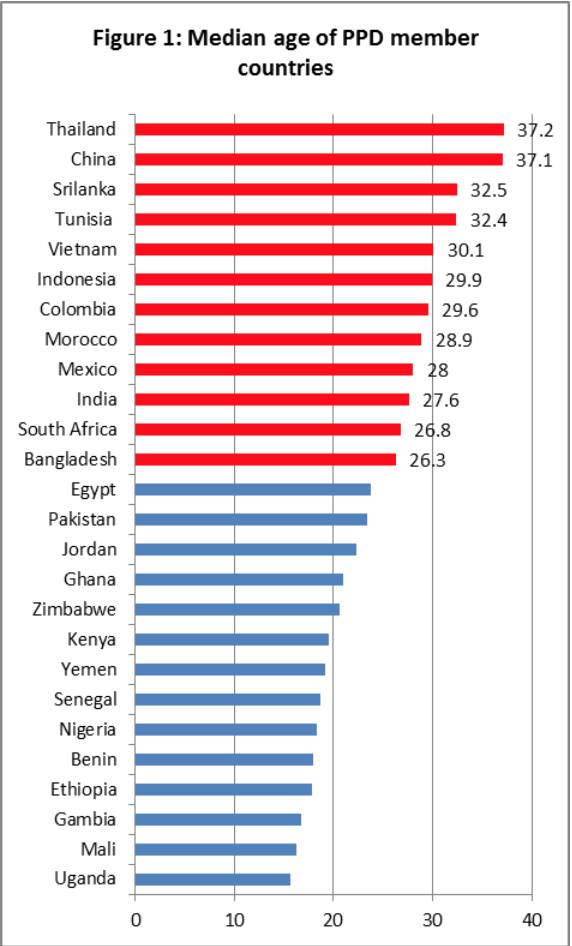1st October 2017, PPD HQ, Dhaka, Bangladesh:
“Stepping into the Future: Tapping the Talents, Contributions and Participation of Older Persons in Society” is the theme of the International Day of Older Persons 2017. This year the day is about enabling and expanding the contributions of older people in their families, communities and societies at large. It focuses on the pathways that support full and effective participation in old age, in accordance with the old person’s basic rights, needs and preferences.
 The older population carry with them lifetime skills and experience, and continue to contribute to the local economies through paid or unpaid employment. Many have valuable roles of caring for or raising children. For example, up to 60% of children orphaned by AIDS in Zimbabwe and Namibia are raised by their grandparents. Older people bring to their communities a wide range of social and economic benefits that certainly challenges negative stereotypes of ageing.
The older population carry with them lifetime skills and experience, and continue to contribute to the local economies through paid or unpaid employment. Many have valuable roles of caring for or raising children. For example, up to 60% of children orphaned by AIDS in Zimbabwe and Namibia are raised by their grandparents. Older people bring to their communities a wide range of social and economic benefits that certainly challenges negative stereotypes of ageing.
The derivatives of demographic and health transition are resulting in aging in developing countries. Statistics revealed that in 2050, in about 35 years’ time, there would be older people worldwide than children, for the first time in history. Today, in developing countries, almost two-thirds (62%) of the aged people are living and this proportion is expected to increase to 80% by 2050.
The Global North has already encountered the challenge of ageing; in concurrence, they developed policies, infrastructure and invested persistently. The most advantageous prerogative is that the Global North is well equipped with quality data and evidence. On the contrary, ageing is an impending emergency for the Global South. Countries are struggling to include ageing in their national agenda and to draw due political attention to it. Stakeholders are trying to put together the evidence to seek essential investment. Most of the countries in the Global South are not yet ready to address ageing in terms of infrastructure and service delivery. On the other hand, the Global South is comparatively slow to adopt ageing as a major public policy concern, despite the fact that older populations in many developing countries are growing more rapidly than are those of the Global North.
PPD and its demographic reality
Demographic transition indicates that it is high time for the PPD member countries to prepare themselves to encounter the challenge of population ageing and to equip themselves accordingly. The median age of the member countries depict that 12 member states reached the median age of 26 and above (Figure 1).
Portraying the country situation, member countries need to explore the existing facilities simultaneously to boost up the debate related to ageing so that critical reasoning derives a holistic know how to address ageing in a cost effective and practical manner.
No doubt, population ageing is inevitable, affects every aspect of development in the context of developing settings. Investment is required on a priority basis to address ageing systematically and how the policy could be moderated. It is important to be realistic to hinge the issue of ageing in a pragmatic way across developing countries.
PPD’s response in ageing across member countries: PPD is an intergovernmental organization aligned along the philosophy of South-South Cooperation. 26 developing countries comprise the members of the organization. In concurrence, PPD avails the opportunity to work with the respective government systems and the policy levels to influence the policy and program. Debates, discussions and programmatic evidence have already indicated that ageing is an upcoming issue where the member countries are not paying sufficient attention as they should but are involved with other burning issues like adolescent health, maternal mortality, child mortality, etc. Preparation to address the issue of ageing is not a snap shot job. It requires a long run visionary plan or else the countries will face a terrific challenge of the obligatory demand of the aged population of the country. On the other hand, few researches have been conducted in developing countries on ageing; plans and actions that are recommended so far to the national policy makers are not that realistic in terms of the country’s financial and cultural perspective. Very few researches demonstrate evidence-based result so that political leaders could be mobilized through strong advocacy. The services and the infrastructure that are mandatory to address the wellbeing of the ageing demand huge political commitment from the country level, It is the high time to cope and replicate the innovative approaches to the global south that are already in place in the global north. The Ageing Commission under the PPD umbrella has already created an advocacy platform firmly appealing to the member countries to move forward for the population in ageing with a firm political commitment.
PPD expects that the member countries will be able to create societies with a social protection system that will enable people to contribute during their working life and have a pension at the end of that life. This will indeed be supportive along with the family support that the Global South already has in their tradition and culture.
Factsheet: Ageing situation of PPD’s Member Countries
